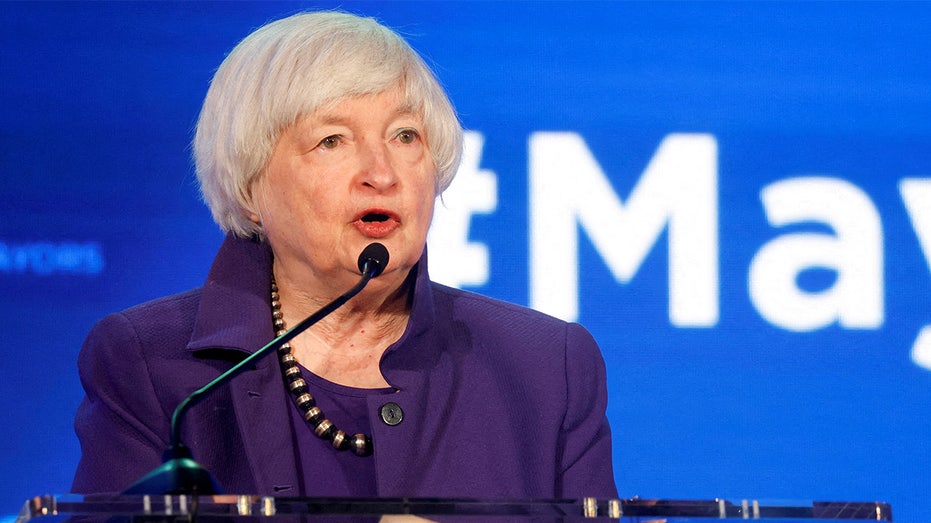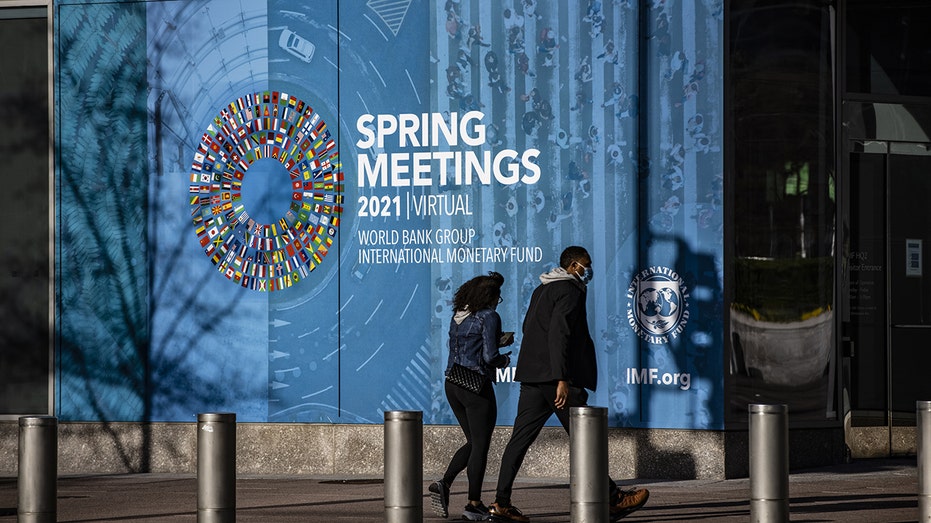Yellen blames Russia-Ukraine war for rising food prices, urges institutions to take ‘concrete action’
Rep. David Kustoff, R-Tenn., calls out Treasury Secretary Janet Yellen for supporting big spending and creating ‘tremendous inflationary pressures.’
Treasury Secretary Janet Yellen on Tuesday blamed the Russian war in Ukraine for a growing crisis over food insecurity and skyrocketing food prices, calling on international institutes to “deepen their response” to risks of hunger around the world.
“The war has made an already dire situation worse,” Yellen said in remarks prepared for delivery during the annual International Monetary Fund and World Bank spring meeting “Price and supply shocks are already materializing, adding to global inflationary pressures, creating risks to external balances, and undermining the recovery from the pandemic. I want to be clear: Russia’s actions are responsible for this.”
IMF CUTS GLOBAL GROWTH OUTLOOK ON RUSSIA-UKRAINE WAR
The panel on Tuesday included the heads of the IMF, the World Bank and the International Fund for Agricultural Development, as well as ministers representing the G-7 and G-20 nations and technical experts from international financial institutions, according to the Treasury Department.

The G-7 will convene a task force to focus on freezing and seizing assets of key Russian elites as it aims to put further pressure on Russia after its invasion of Ukraine, Treasury Secretary Janet Yellen said Tuesday. (Reuters / Reuters Photos)
Yellen acknowledged that factors such as conflict, climate change and economic downturns like the COVID-19 pandemic have also contributed to food scarcity, but maintained that the European war had exacerbated the pre-existing supply pressures. She urged the international financial institutions to take “concrete steps” to mitigate the global food crisis, including avoiding export restrictions that could further strain prices.
The Russian invasion on Feb. 24, and subsequent financial penalties from Western allies targeting Moscow, have intensified supply shocks to the global economy, including disrupting Ukrainian exports of corn and wheat. Russia and Ukraine produced 14% of the world’s wheat supply, according to the United Nations.

Pedestrians walk past IMF and World Bank spring meetings signage outside the IMF headquarters in Washington, April 3, 2021. (Samuel Corum/Bloomberg via Getty Images / Getty Images)
The result has been soaring food prices and uncertainty about the future of food security globally, particularly in lower-income nations.
GET FOX BUSINESS ON THE GO BY CLICKING HERE
The U.N.’s Food and Agriculture Organization Food Price Index, which measures the most globally traded food commodities, hit an all-time high in March with the prices of vegetable oils, cereals and meat all surging. A recent report from the group warned that the global number of undernourished people could grow by 8 million next year, with 13 million people worldwide not having adequate food supplies.
The “most pronounced increases” are expected to take place in the Asia-Pacific region, followed by sub-Saharan Africa, and the Near East and North Africa. If the war lasts, the U.N. warned, the effect could last beyond 2023.
[ad_2]
Source link

